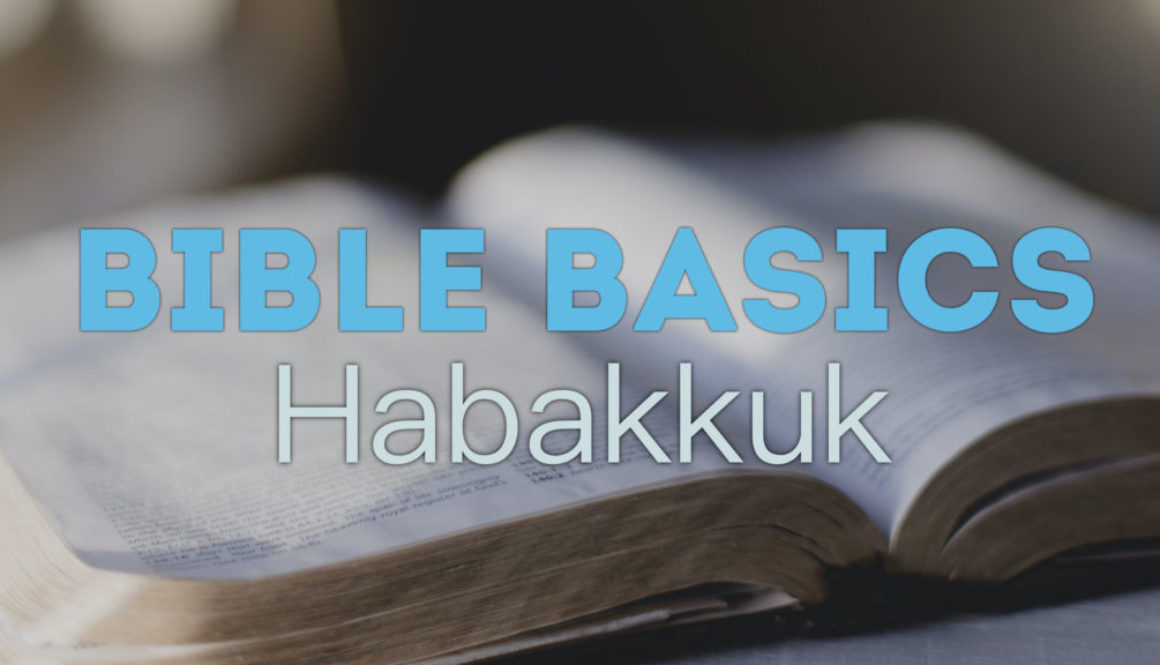Habakkuk
Author
The book was written by Habakkuk, who is identified as a prophet (1:1). Although not much is known about Habakkuk’s personal life, some have speculated that his in-depth knowledge of the Temple ministry could only come from working as a priest. Others have proposed that Habakkuk may have been a member of the Temple musicians, as chapter 3 of the book is written as a victory hymn.
Although many throughout history have tried to connect Habakkuk with the Habakkuk in the apocryphal book of Bel and the Dragon, who delivered porridge to Daniel in the lion’s den, this connection is chronologically impossible.
Date
Although a range of dates are proposed, it is clear that the book was composed after the Babylonians successfully overthrew Assyrian rule in 625B.C; and likely before the death of King Josiah in 612. Still, some scholars put the writing date even later, following the Babylonian defeat of the Egyptians in 605. It is clear from the prophetic content being produced that the book was finished well before the fall of Jerusalem to Nebuchadnezzar in 587.
This timeframe would make Habakkuk a contemporary of Jeremiah, Zephaniah, and Nahum.
Audience and Purpose
Although the book would have been published for the people of Judah, living at the time of the writing, to prophesy the Word of the Lord about Judah’s coming destruction, the book itself seems to be the prophet’s personal prayer journal as he dialogues with the Lord, and also records his own song of praise for God’s righteousness.
Major Themes
- Prophecy
- God’s Righteousness
- Human Evil
- Sin and Judgement
- Sovereignty of God. Although Habakkuk does not understand God’s ways, the book shows a great need to trust Him and His control of all things.
Key Scriptures
- Habakkuk 2:4 — “Behold, his soul is puffed up; it is not upright within him, but the righteous shall live by his faith.
Outline
- Habakkuk 1:1-4 — Habakkuk’s First Complaint
- Habakkuk 1:5-11 — God’s First Response
- Habakkuk 1:12-2:1 — Habakkuk’ Second Complaint
- Habakkuk 2:2-20 — God’s Second Response
- Habakkuk 3:1-19) —Habakkuk’s Prayer (Psalm)
Gospel Summary
As Habakkuk lives in a time when even the remnant of God’s people in Judah are living in sin, the prophet cries out for God’s justice. However, when the Lord declares He will use the Babylonians (Chaldeans) to bring judgement on Judah, just as the Assyrians brought judgement on Israel, Habakkuk’s theology is challenged. How can God use one unrighteous people to bring judgement on another, and especially a faithless pagan nation such as Babylon to bring judgement on His chosen people?
In His grace, God responds to Habakkuk’s questions by declaring His own righteousness and sovereignty, which go far beyond human comprehension. Much like God’s response to Job in Job 32-41, the Lord does not demonstrate a need to explain Himself to Habakkuk. And in the same way as Job, Habakkuk’s only possible response is to humble himself and worship the Lord.
As Habakkuk ends the book by declaring God’s judgement on the Babylonians (and by implication, on all ungodly nations), it stirs in us the faith that God will keep His word, judge the evil in the world, and sustain the righteous, “who live by faith” in Him (2:4). This, of course, points to the Messianic promises made throughout the Old Testament, and fulfilled in Jesus Christ.
If you’re enjoying the content I produce, a little caffeine to keep me going would be appreciated!
© Anthony Scott Ingram 2021. All Rights Reserved.
Photo by Carolyn V on Unsplash
Unless otherwise indicated, all Scripture quotations are from The Holy Bible, English Standard Version®, copyright © 2001 by Crossway Bibles, a publishing ministry of Good News Publishers. Used by permission. All rights reserved.”
Please note that I do get a small kickback from Amazon for any purchases made using the links on this post. Should you choose to purchase from them, I just want to say thank you for further supporting my work in ministry!
